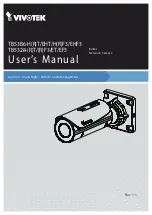
35
client-to-client communications between clients associated with different AP’s on the
local subnet. For instance an airport may have several AP’s to service several "hot
spots" within the airport. However the client-to-client blocking feature of the AP will
only block communications to other clients associated with the same AP. It will not
block client-to-client of other AP communications. By using the
Uplink Filtering
function of the AP communications to all other clients of all other AP’s on the same
subnet can be blocked.
It is important to note that this feature only works if all the AP’s are on the same
subnet. If an AP is located on the far side of the gateway (i.e. on a different subnet) its
clients will NOT be blocked from communicating with clients on the local subnet of
interest.
This feature is accessed on the Filter Page of the user interface. Click on the Uplink
Filter List link and add up to eight MAC addresses that WILL be allowed to
communicate with clients of the AP. Make sure to include the MAC of the local
DHCP server, if it not the same as the gateway as well as and redirect gateways and
other servers that should be allowed to communicate with the AP’s wireless clients.
Make sure to click on the save button on both the Uplink Filter List page as well as the
Filter page to activate the function.
F
ILTERING
BY
E
THERNET
P
ROTOCOL
T
YPE
Use the Ethernet Type Filter table to filter out Ethernet packet frames that match the
Ethernet protocol type. Select
Ethernet Type Filter Enable,
then set the status of each
Ethernet frame type in the list.
Although there are five types of IPX packets, the Filter Control page shows only two
options for IPX filtering. The following table shows how to filter each IPX packet
type:
SNMP
Use the SNMP page to display and enter a community string for the Simple Network
Management Protocol. To communicate with the access point, the SNMP agent must
ISO Designator
Filter
8138
Enable 8138
8137
Enable 8137
802.3(Raw)
Enable 8138
802.2
Enable 8138
SNAP
Enable 8137














































